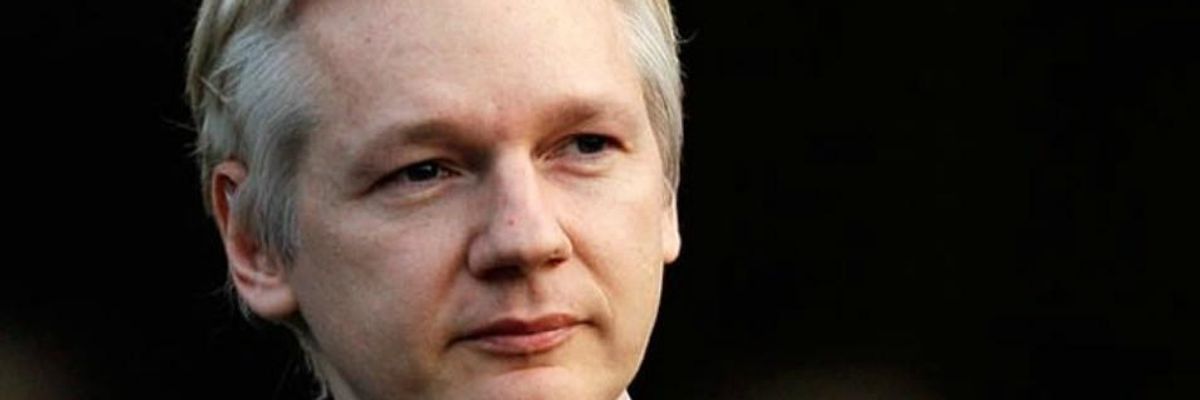When telling the truth is a revolutionary act, journalists and whistleblowers are targets. When politicians attack freedom of speech, media becomes weaponized.
And here we are.
How ironic that the government of Turkish President Erdogan is postured as truth-leaker in the apparent gruesome murder of Washington Post journalist Jamal Khashoggi. Turkey is the leading per-capita jailer of journalists, whose "crime" often consists of speaking out against the repressive regime.
CIA Director Gina Haspel's recent meeting with Erdogan about the Khashoggi case raises questions. Declassified cables reveal that when Haspel led a "black site" CIA prison in Thailand, prisoners were subjected to "extended sessions of physical violence, wall slamming, box confinement, sleep deprivation, forced nudity, shackling, stress positions, and waterboarding." She later admitted to "being an advocate" of destroying evidence.
While Haspel's visit to Turkey was billed as intelligence gathering, some suggest the true mission was to warn Erdogan against angering Saudi Arabia or else risk embarrassing evidence about Turkish officials being leaked in retaliation.
Whatever the case, multiple sources report that Haspel heard audio recordings of Khashoggi's death during her time in Ankara and that she later briefed Trump and Secretary of State Mike Pompeo.
Pompeo has issues of his own regarding torture and extraordinary extradition. He supported "enhanced interrogation" tactics such as waterboarding and criticized the Obama administration's closing of CIA ''black sites'' overseas.
Unsurprisingly, Pompeo's photo op meetings in Saudi Arabia about the Khashoggi case yielded few results. He later told journalists, "I don't want to talk about any of the facts. They didn't want to either..."
While Pompeo has had a testy relationship with the media for years, he's been especially obsessed with WikiLeaks and its founder Julian Assange. In Pompeo's first public speech as CIA Director in 2017, he slammed WikiLeaks as a "non-state hostile intelligence service" adding that "we can no longer allow Assange and his colleagues the latitude to use free speech values against us."
"Use free speech values against us"?
Interestingly, while the story behind Khashoggi's disappearance continues to unfold, Assange is fighting a battle of his own. And Trump administration officials are involved in both cases.
Assange has been holed up in the Ecuadorian embassy in London since 2012, after seeking protection against sexual assault allegations in Sweden. While the initial arrest warrant has since been revoked, if Assange leaves the embassy he runs the risk of being arrested by UK authorities and extradited to the US on charges of leaking classified documents.
The US government has targeted WikiLeaks and Assange for years. A confidential US Army document from 2008 recommends "legal actions" and attacks on the livelihood and reputation of "current or former insiders, leakers, or whistleblowers" connected to WikiLeaks in order to "damage or destroy" its "trust as a center of gravity."
In short, destroying WikiLeaks' "trust as a center of gravity" will ensure it cannot "use free speech values against us." So much for the First Amendment.
Of course, Pompeo supported WikiLeaks when it released hacked Democratic National Committee (DNC) emails during the 2016 election campaign, encouraging his social media followers to visit the WikiLeaks site for "proof."
Similarly, then-candidate Trump mentioned WikiLeaks over 160 times during the final month of the 2016 presidential campaign, calling it "amazing" and even saying "We love Wikileaks. Wikileaks. They have revealed a lot."
But it's one thing to reveal information about the DNC and another thing entirely to expose a CIA hacking program with domestic spying implications - which is exactly what WikiLeaks did in March 2017 with its Vault 7 release. Just a month later, reports surfaced that US authorities had prepared charges against Assange, with Attorney General Jeff Sessions calling his arrest a "priority."
Assange was granted Ecuadorian citizenship in late 2017, possibly part of a covert plan to relocate him to Russia in 2018. The British Foreign Office blocked that plan, however, so Assange remains in London.
The situation is untenable. Ecuador's President Lenin Moreno sees Assange as an "inherited problem" impacting the country's relations with the US. Hanging in the balance for Ecuador could be a military base and an International Monetary Fund loan.
Assange's recent legal case protesting new asylum conditions was rejected by a court in Ecuador. Meanwhile, his health deteriorates in what amounts to solitary confinement without access to sunlight or fresh air. His contact with the outside world remains severely curtailed.
In February 2018, weeks before Assange's internet access was cut, he participated in the Austrian Elevate festival. Via videostream he said, "Journalists go out - or at least they should - develop sources, protect them, take information and publish it. Interestingly, intelligence agencies do the same thing..."
He referred to the "Pompeo Doctrine" as a "serious threat to the press," adding that authorities were attempting to use his situation as a "general deterrent."
And that begs the question: What would happen if Assange were extradited to the US?
Former House Speaker Newt Gingrich has said Assange should be treated like an enemy combatant, while Hillary Clinton has wondered if he could be killed by a drone.
Pompeo recommended the death sentence for whistleblower Edward Snowden. Trump has joked about killing journalists.
Fox host Rush Limbaugh suggested that Assange "would die of lead poisoning from a bullet in the brain and no one would know who put it there!" Fox commentator Bob Beckel offered: "Dead men can't leak stuff... there's only one way to do it: illegally shoot the son of a bitch."
Assange's mother "shudders to think" what CIA Director Haspel might do to her son.
At Elevate, Assange expressed pride in his work, adding that those who have the luxury of living in peace must see through "the illusions of fear in order to ensure that those people in other countries don't face the reality of war."
In such a kill-the-messenger environment, it is unclear what the next steps will be for Assange - or indeed for freedom of the press.




